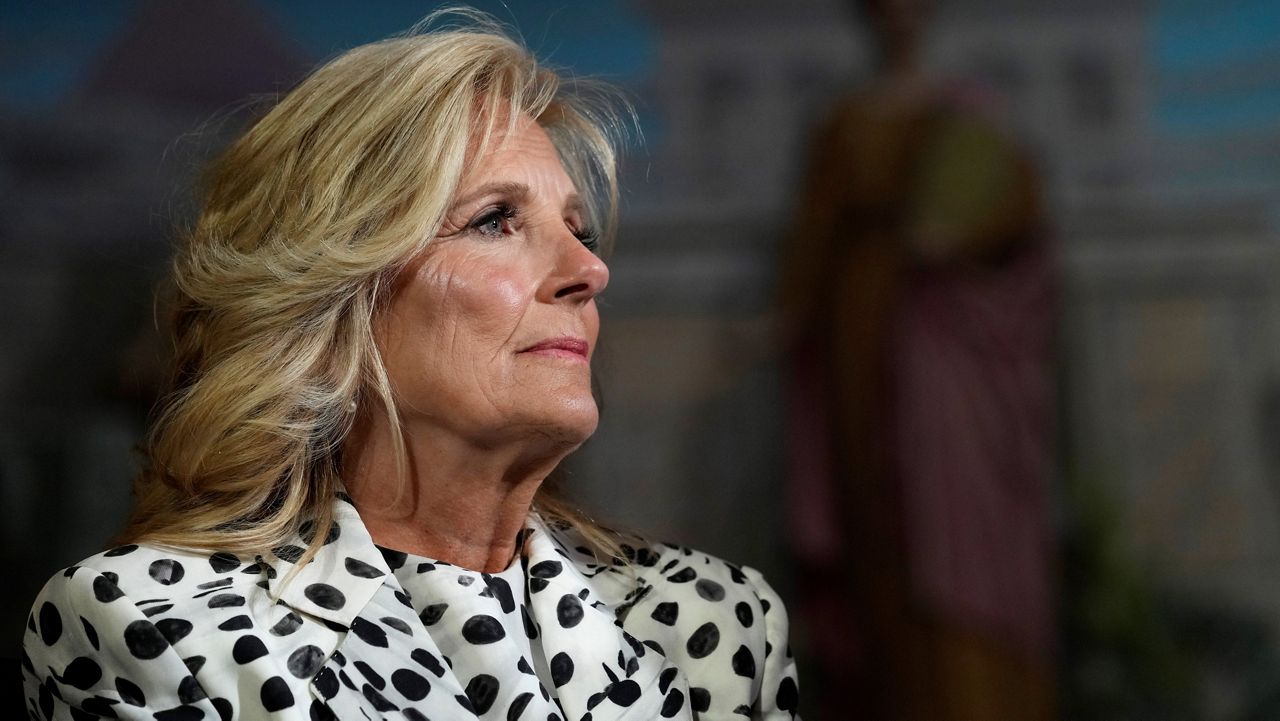President Joe Biden is establishing a White House Initiative on Women’s Health Research, as officials hope to close a gender gap in studies that has left too many questions unanswered.
What You Need To Know
- President Joe Biden is establishing a White House Initiative on Women’s Health Research, as officials hope to close a gender gap in studies that has left too many questions unanswered
- First lady Jill Biden, who will co-lead the effort, announced the initiative in a call with reporters Monday morning
- She said the action was spurred by a meeting earlier this year between her and former TV journalist and California first lady Maria Shriver
- The initiative will call on a wide range of federal departments and agencies — including the departments of Health and Human Services, Defense and Veterans Affairs — to deliver recommendations within 45 days on how to advance women’s health research
First lady Jill Biden, who will co-lead the effort, announced the initiative in a call with reporters Monday morning. She said the action was spurred by a meeting earlier this year between her and former TV journalist and California first lady Maria Shriver.
Shriver, along with other women’s health advocates, stressed to Jill Biden the need for such an effort inside and outside government. The first lady then brought it to the president’s attention.
“I have always believed in the power of research to save lives and to ensure that Americans get the high-quality health care they need,” the president said in a statement. “To achieve scientific breakthroughs and strengthen our ability to prevent, detect, and treat diseases, we have to be bold.”
Shriver said because of underfunded research, it’s unclear why women, for example, account for two-thirds of Alzheimer’s disease cases or 80% of autoimmune disease cases, or why women have depression and anxiety at twice the rate of men.
“I’ve been working in this space for over 20 years,” said Shriver, the ex-wife of movie star and former California Gov. Arnold Schwarzenegger. “And for decades, we’ve been asking for equity when it comes to investing in women’s health research, but it has taken this president and this first lady to address the issue of how sick women are in this country.
“Bottom line is that we can’t treat women or prevent them from becoming sick in the first place if we have not invested in funding the necessary research changes today,” Shriver added.
The initiative will call on a wide range of federal departments and agencies — including the departments of Health and Human Services, Defense and Veterans Affairs — to deliver recommendations within 45 days on how to advance women’s health research. The president will direct the initiative’s member to set priority areas in which additional investments could be made.
A senior White House official said the administration is not asking Congress for additional funding for women’s health research now but might later.
“Research on women’s health has been underfunded for decades, and many conditions that mostly or only affect women or affect women differently have received little to no attention,” Jill Biden said. “Because of these gaps, we know far too little about how to manage and treat conditions like endometriosis and autoimmune diseases like rheumatoid arthritis.”
The National Institutes of Health spends just 10.8% of its overall funding on women’s health research and that 12% of NIH funding for Alzheimer’s and related dementias goes toward women’s-focused research, according to the White House.
The initiative also could help place a greater emphasis on researching women’s heart disease, chronic disease and disability, and menopause, among others, officials said.
The first lady will lead the initiative along with Dr. Carolyn Mazure, who was named chairwoman. Mazure joined the Office of the First Lady after serving as a professor in women’s health research at Yale School of Medicine.
Mazure said data showing women are at greater risk for a number of ailments “are our call to action.”
“What is empowering is that we can change this,” she said. “We have already shown that we can change the landscape of research, advance science and improve outcomes. And we must apply the same resolve working with all stakeholders to accelerate research that informs us about these and other critical areas of the health of women.”



